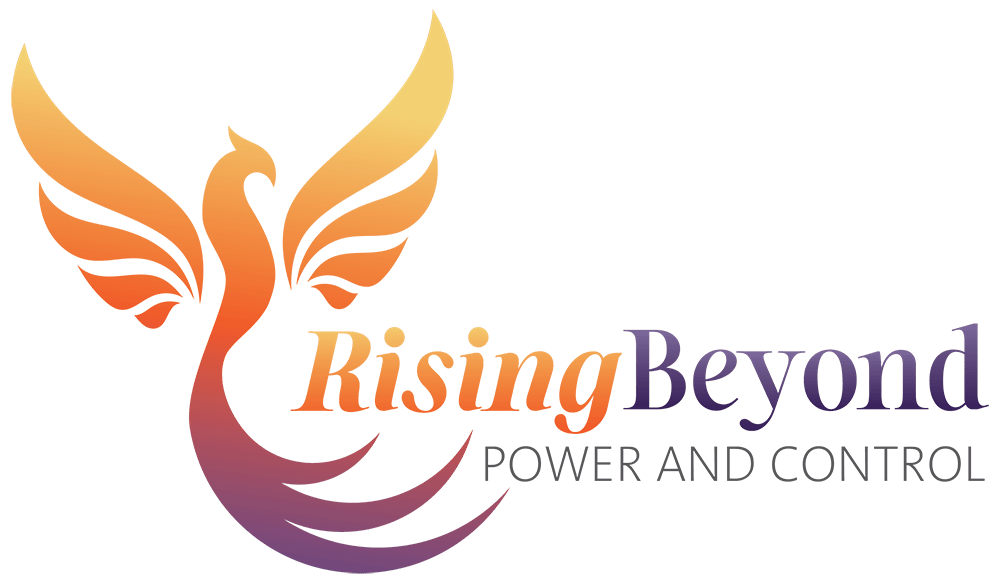 How many times do you hear women say, “I did it for my children"? It’s nearly a universal answer. We sought an education or a new job to give them a better life. If they need extra care, we find a way to spend less time at work and more time with our children. We move to a better school district. We travel to find the right specialist. We throw them a birthday party when what we really need is a new bra and underwear or maybe a medical procedure with a decent copay and some recovery time. This is the world that we live in. I know that I built my entire mid-twenties to mid-thirties around mothering. It’s what culture tells us is an acceptable use of our time and resources. We are praised for it. It feels good. Until you do something for yourself, which may also be for your children, but the primary goal is your wellness. Then people start to talk, and those around you who benefit from your martyrdom become angry. Now, they are having to spend some of their time and resources parenting. It is appalling to society and to a partner who feels fully entitled to use all of their resources for their benefit and think that women should be the only one to sacrifice time and resources for child rearing.
0 Comments
By Sybil Cummin, MA, LPC, ACS

I love a good personality quiz.
It always brings back memories of getting my monthly Seventeen magazine and taking the different quizzes to learn all about myself. What kind of friend am I? Which new hot celeb should be dating? What does my style tell others about me? I loved every single one of them. And still do! Now that I'm older though, there really needs to be a little bit more depth before I am going to spend the time learning more about myself through a quiz (unless I'm waiting at the dentist office). How does this relate to survivors of domestic violence and narcissistic abuse? Well, one of the most horrific consequences of domestic violence and narcissistic abuse is that your identity and sense of self are under attack and often completely stripped away. It can be exhausting and scary to try to figure out who you are again, what makes you tick, and then to accept and love yourself for all of those things?!?! One tool you might want to add to your tool belt as you find your sense of self and learn to love and embrace who you are is the Enneagram. I recently had a conversation with my good friend and colleague, Talya Dash, LCSW, on how the enneagram can be used to find empowerment and sense of self as you heal from your abusive relationship. Below are a few of the key takeaways from this conversation.
By Sybil Cummin, MA, LPC, ACS

Navigating post separation abuse can leave us with barely a moment to catch our breath, let alone address the profound effects of how the abuse has completely derailed our mental and physical health. Imagine discovering an approach that encourages us to pause, evaluate, and strategically alter our paths towards a more aligned sense of wellbeing.
That's precisely what we learned during a recent discussion with Licensed Clinical Social Worker, Stephanie Small on The Rising Beyond Podcast. Stephanie shares her deep understanding of the interplay between nutrition, mental health, and systemic societal issues. Now, between the hustle and bustle of single mom life, you might be thinking, “I need this information but when do I actually have a moment to listen?” I’ve got you! I’ve grabbed the top three lessons that can help recalibrate your approach to health and happiness from the episode. And if this resonates and you want a deeper dive, I hope you can make the time for yourself to listen to the full episode. You deserve it.
By Sybil Cummin, MA, LPC, ACS

How often do you find yourself saying “Yes” to something you know you do not have the time or bandwidth to take on just to avoid conflict?
I think this is an extremely common occurrence, especially for women. But, if you are healing from domestic violence, narcissistic abuse, or an abusive family of origin, these patterns of saying “Yes” may be more than just trying to avoid hurting someone’s feelings…these patterns likely allowed you to survive. I’ve just wrapped up a conversation with my new friend Anita Sandoval on The Rising Beyond Podcast, and I feel like this episode can be used as a guide to move you from constantly fawning and people-pleasing to feeling more empowered to make decisions based on your needs and wants. Anita shared some personal experiences that were tough and led to her constantly foregoing her own needs in order to take care of an abusive partner and stay in the good graces of her family. She would likely say that challenging these patterns was not a walk in the park but was well worth it. So, pull up a chair, and let's unpack some of the lessons that can be learned from this conversation. Reshaping The Family Court System for Survivors of Narcissistic Abuse: Lessons from Lundy Bancroft8/15/2023
By Sybil Cummin, MA, LPC, ACS

In the high-stakes arena of family court, where the well-being of children should be in the forefront of everyone’s minds, survivors of domestic violence and narcissistic abuse are often ignored or even punished for trying to protect their children.
Navigating legal proceedings with an abusive ex can feel like an endless battle. In Episode 60 of The Rising Beyond Podcast, Beyond Legislation: Reshaping Family Court with Lundy Bancroft, our expert guest shines a spotlight on the systemic challenges and the potential pathways to a reformed family court that truly protects the vulnerable. There are so many lessons that we can take away from this episode that features Lundy Bancroft, a leading authority on interventions for abusive men and passionate advocate for women survivors. I wanted to give you all the “Cliffs Notes” version of the top three takeaways that promise to reshape your understanding of family law, advocacy, and healing. By Sybil Cummin, MA, LPC, ACS  Do y’all remember that ridiculous spectacle of Charlie Sheen where he basically coined the term “Winning!” It shined a spotlight on his mental health state and was also annoying in my opinion. And it feels remarkably similar to how a narcissistic ex acts after the relationship has ended and they have found ways to manipulate the family court system. So, what does it mean in your ex’s world to win?
The difficult part about this entire situation is that the way that our family court system is set up allows and actually seems to encourage these behaviors. By Sybil Cummin, MA, LPC, ACS  Having a hard time falling asleep worrying about your kids? How are they doing in school? Are they making healthy friends? Am I preparing them for all that life throws at them? Does worry about how your child is coping with the new parenting plan or worry about their safety at the other home keep you up all night and hypervigilant all day? You are not alone. Parents worry a ton in general, however if you have experienced domestic violence or narcissistic abuse or are dealing with family court with your abuser, this is likely not an every-now-and-then issue. You are probably chronically losing sleep. Is there anything we can do about it? By Sybil Cummin, MA, LPC, ACS  In an ideal world, co-parenting would be a great idea. You would be able to discuss your concerns respectfully and keep the children's best interest at the heart of every decision. Although you might disagree on some things, you could have trust that your ex is coming from a place of authenticity and genuine care for your children. You would NOT feel anxious any time you received a text, email, or call. But, really? With this guy? Co-parenting? Ok ok, all jokes aside. You are in it and have to figure this out. So let's take a look at what is in the best interests of your kiddos, what is in your best interest, and what is in the best interest of your ex.  "If someone in your life has a pattern of playing the victim, it may feel confusing and frustrating. You’re not alone and there are ways you can cope." In the article, How People with Narcissistic Personality Disorder (NPD) Play the Victim for PsychCentral, Sybil Cummin, MA, LPC, ACS and other experts weigh in on the patterns individuals with NPD display when playing the victim and how we can respond. What is the "victim mentality" and why do individuals with NPD like to exist in this space? What are the best, proven ways to interact with someone in this state of mind? Read the full article here. By Sybil Cummin, MA, LPC  As I sit with my female clients day after day, a common theme emerges. Right now, they are extremely angry and that makes them extremely uncomfortable. It is probably helpful to mention that all my female adult clients are victims and survivors of domestic violence and narcissistic abuse. Maybe that makes more sense to you now. That they are angry at the abuse they have endured and maybe that they are angry at themselves for allowing the abuse to happen. You are not wrong. Many are angry for exactly these reasons. But they haven’t always been angry. It wasn’t safe for them to be angry. So, what has changed? Similar to the grief process when someone you have loved has died, anger is a stage in a larger process of healing. These women are also grieving, but they are grieving the loss of a person and a relationship that was not real. They are grieving the promise that was made to them over and over again as a way to keep control of them. Some are grieving the loss of the years they spent trapped, and some are grieving the loss of their identity completely. |
AuthorSybil Cummin, MA, LPC, ACS, is a Licensed Professional Counselor who specializes in working with victims and survivors of narcissistic abuse. Archives
July 2024
Categories
All
|
About |
Resources |
Member Content
|
The content on this website is meant for informational and educational purposes only and is not intended to substitute medical or mental health diagnosis or treatment. Rising Beyond Power and Control also differentiates between coaching services and counseling services. You can read our full Disclaimer here.

 RSS Feed
RSS Feed
